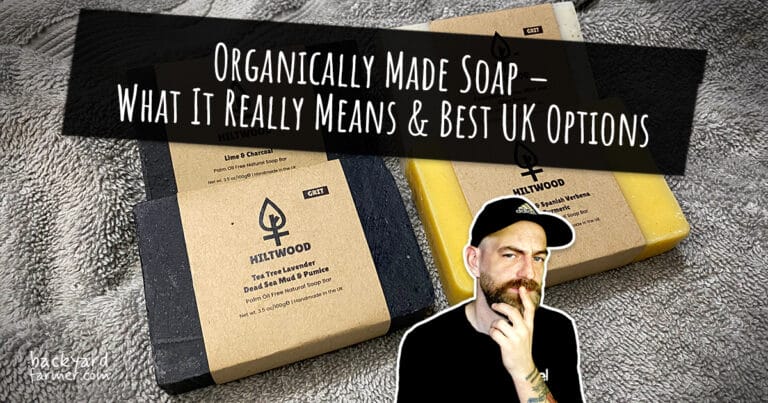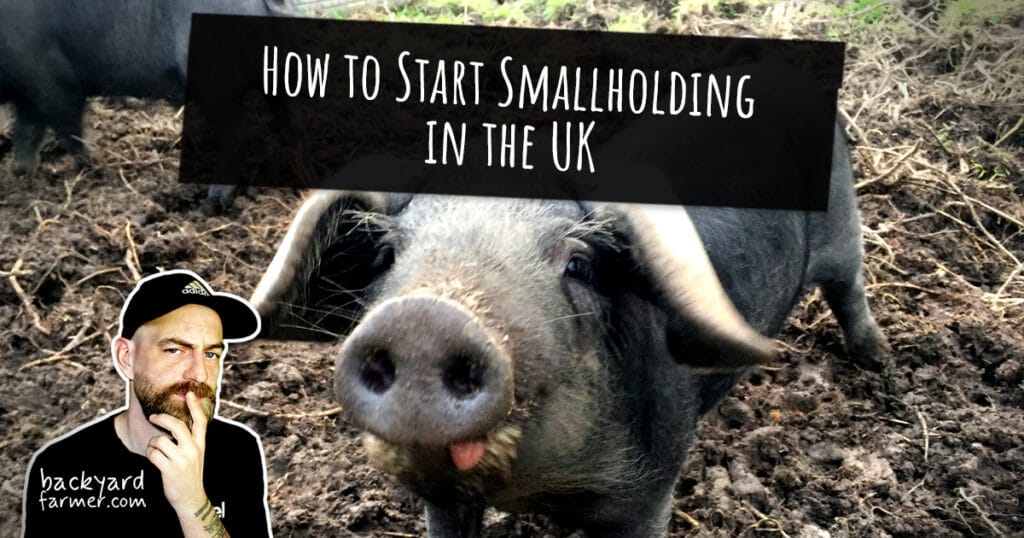Introduction
Choosing a truly natural soap shouldn’t feel confusing. Yet with terms like organic, natural, handmade, and even organic soap UK used so loosely, it’s easy to feel unsure about what any of it really means. Most of us simply want cleaner ingredients, gentler formulas, and products that respect both our skin and the planet. But the phrase organically made soap can be surprisingly unclear—especially when brands mix in terms like organic handmade soap, natural bar soap, or organic soap bars UK without much explanation.
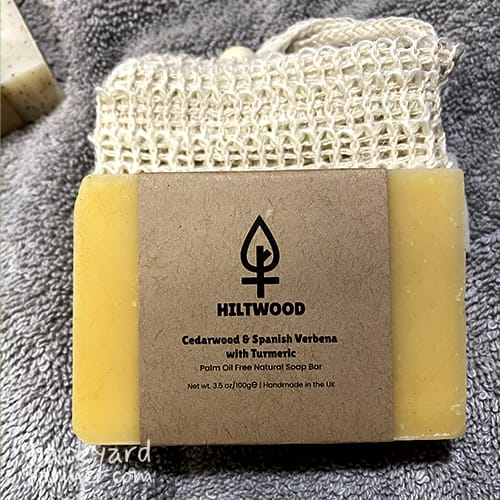
This guide breaks everything down in clear, honest language so you know exactly what you’re buying. You’ll learn:
- What actually qualifies a soap as organic in the UK (and how this differs from natural or handmade soap)
- How organically made soap compares to other natural and organic soap bars
- Why these soaps often feel kinder on sensitive or easily‑irritated skin
- Which UK brands offer genuinely trustworthy, organically focused options—featuring Hiltwood as a standout natural, palm‑oil‑free choice
Throughout this article, I’ll keep things friendly, practical, and down‑to‑earth. With the help of this guide, you’ll be able to spot greenwashing quickly, understand the difference between organic and natural soap, and confidently choose a bar that suits your skin, values, and everyday routine.
Continue your natural soap & sustainable living journey
- Vegan soap UK – Discover the benefits and options for plant-based soaps that are gentle on skin and the planet
- Palm-oil-free soap UK — your complete guide to ethical sustainable soap choices – Find ethical soap options that avoid environmentally harmful palm oil
- 100% natural soap UK – A guide to truly natural soap products made without synthetic additives
What Qualifies a Soap as Organic?
Understanding what makes a soap truly organic can feel confusing, especially here in the UK, where there’s no single legal definition. can feel a bit murky—especially here in the UK, where the term isn’t tied to a single legal definition. Even so, there are clear standards that help you separate genuine organically made soap from clever marketing.
In this section, we’ll break down what organic soap really means, how to read labels confidently, and how to avoid the usual greenwashing traps. If you’d like a clearer breakdown of what “100% natural soap” actually means in the UK, our full guide explains how to spot genuine natural bars.
The UK Reality of “Organic” in Cosmetics
Unlike food, the UK doesn’t have strict laws that define what an organic cosmetic must be. Because of that, some brands use the term organic soap quite loosely—as long as they avoid misleading claims.
To bring more consistency, several independent certification bodies now offer trusted standards. When you spot a recognised logo from the Soil Association, COSMOS, or Ecocert, it tells you that the soap meets real, measurable criteria for organic handmade soap or organically-focused formulas.
For readers who want to explore certified organic beauty brands in the UK, the Soil Association also shares a helpful directory of companies meeting their COSMOS Organic standards.
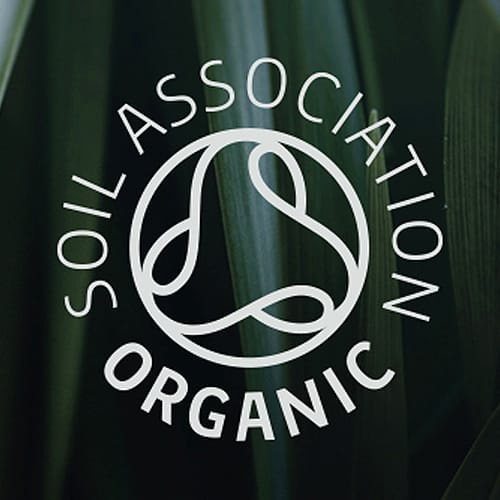
These certifications generally guarantee:
- A high percentage of organic plant oils and butters
- Restrictions on synthetic ingredients and petrochemicals
- Responsible farming and harvesting practices
- Clear, transparent labelling
So, when a bar is certified, you can feel confident that someone has actually verified the claims.
What Organic Soap Usually Includes
Although each certifying body has its own rules, most organic soap bars UK–wide share a few key features:
- Organic base oils like olive, coconut, sunflower, castor, or shea
- Organically grown botanicals or essential oils
- Minimal synthetic additives, limited to approved ingredients
- Cold-process or traditional methods that protect the quality of the raw oils
Together, these elements create a soap that focuses on purity, transparency, and genuinely eco-conscious production.
Ingredient & Label Checklist
If you want a quick way to tell whether you’re looking at real organic bar soap or just a natural-sounding label, use this checklist: whether you’re looking at real organic bar soap or just a natural-sounding label, use this checklist:
Signs of a Real Organic Soap
- A recognised certification logo (Soil Association, COSMOS, Ecocert)
- A clear percentage of organic ingredients on the label
- Ingredients marked as organic or organically grown
- A simple, easy-to-read INCI list full of plant-based names
Red Flags for Greenwashing
- A big “organic” claim but no certification or supporting details
- Only one tiny organic ingredient (like a botanical extract)
- Vague buzzwords such as “chemical-free”, “pure”, or “eco-friendly” with no explanation
- Missing, unclear, or overly complicated ingredient lists
Once you know these signs, choosing genuine organically made soap becomes far easier—and a lot more satisfying., choosing genuine organically made soap becomes far easier—and a lot more satisfying.
Why Organic Soap Can Be Better for Sensitive Skin
If you have sensitive, dry, or easily irritated skin, you’ll know how quickly the wrong soap can leave you feeling uncomfortable., you’ll know how quickly the wrong soap can leave you feeling uncomfortable. This is exactly why so many people eventually switch to organically made soap or natural organic soap bars—they’re usually gentler, simpler, and far less likely to throw your skin barrier off balance. So, in this section, we’ll look at why organic and natural bar soap can be a better choice, while keeping things realistic and easy to understand.
Common Irritants in Mainstream Soaps and Body Washes
Most supermarket soaps and shower gels are made for mass production, long shelf life, and strong foaming power. for mass production, long shelf life, and strong foaming power. Because of this, they often include ingredients that don’t always play nicely with sensitive skin. Common culprits include:
- Sodium Lauryl Sulfate (SLS) – a harsh detergent known for stripping natural oils.
- Synthetic fragrances and perfumes – among the most common causes of irritation and contact dermatitis.
- Artificial colourants and dyes – unnecessary extras that can dry or inflame the skin.
- Preservatives and stabilisers – effective for shelf life, but not always ideal for reactive skin.
Not everyone reacts to these ingredients. However, if you often feel itchy or tight after washing, these mainstream additives are worth paying attention to.. However, if you often feel itchy or tight after washing, these mainstream additives are worth paying attention to.
How Organic and Natural Soap Bars Differ
Organically made or naturally formulated soaps take a much more skin‑friendly approach.. Instead of relying on harsh detergents, they use ingredients that support the skin’s natural balance. In most organic soap UK products, you’ll find:
- Saponified plant oils like olive, coconut, sunflower, castor, or shea butter
- Short and simple ingredient lists, often under 10–12 ingredients
- No SLS or SLES, since the soap itself is created naturally during saponification
- Natural or organic essential oils for scent—or fragrance‑free options for sensitive skin
- Cold‑process or traditional methods that preserve the nourishing qualities of organic oils
Because of this, organic and natural handmade soap tends to cleanse without stripping moisture, helping your skin stay calm, soft, and balanced. tends to cleanse without stripping moisture, helping your skin stay calm, soft, and balanced.
Important Notes for Sensitive Skin
Although organic bar soap is often gentler, it’s still important to keep expectations realistic., it’s still important to keep expectations realistic. Here are a few things to keep in mind:
- Organic doesn’t mean hypoallergenic — essential oils can still cause reactions.
- Fragrance‑free or unscented options are the safest choice for very reactive skin.
- Patch testing is always wise, especially when trying a new brand.
- It’s not a medical treatment — people with eczema or psoriasis should follow professional guidance.
A Gentle Approach to Everyday Skin Care
For many people, switching to organic handmade soap or naturally formulated bars leads to a noticeable improvement in comfort and overall skin feel. or naturally formulated bars leads to a noticeable improvement in comfort and overall skin feel. The key is choosing a bar with simple, honest ingredients that support your skin’s natural barrier—something most organic and artisan soap makers genuinely prioritise.
The Best Organically Made Soaps in the UK
Finding genuinely organically made soap in the UK can feel like searching for a needle in a haystack. With so many brands throwing around phrases like natural soap, organic-inspired, eco-friendly, and even organic handmade soap, it’s no wonder shoppers feel unsure about what’s real and what’s just marketing. So, this section pulls together the brands that genuinely stand out for quality, transparency, and sustainability—while also showing exactly where Hiltwood fits into the organic and natural soap landscape.
How These Soaps Were Chosen
To make this list genuinely helpful, each soap was judged against practical, down-to-earth criteria that matter to real buyers looking for the best organic soap UK options:
- High-organic or fully organic plant oils (core to any organic soap bar)
- Clear and honest ingredient lists
- SLS-free formulas that avoid common irritants
- Palm-oil-free or responsibly sourced organic palm oil
- Everyday skin-friendliness, especially for sensitive skin
- Ethical production and sustainable packaging wherever possible
These are not sponsored picks—just strong, trustworthy options for anyone wanting better-quality organic bar soap without the guesswork.
Top UK Options for Organically Made Soap
Here’s a curated shortlist of some of the best organic or organically-focused soap bars in the UK. These brands consistently show transparency, ingredient integrity, and real commitment to natural formulations.
Hiltwood – Natural, Palm‑Oil‑Free, and UK‑Made
Hiltwood isn’t marketed as a certified organic soap brand, but it excels where many organic‑leaning shoppers place their values: clean ingredients, sustainability, and small‑batch craftsmanship.
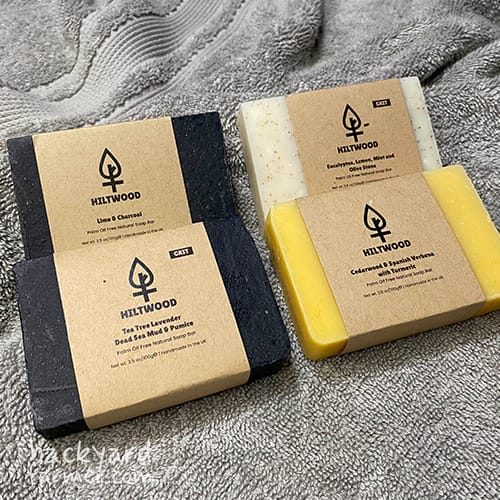
What sets Hiltwood apart:
- 100% natural, cold‑process formulas
- Palm‑oil‑free across the range, which is rare in men’s grooming
- Handmade in the UK, supporting artisan‑level production
- Bold, natural scents created without synthetic fragrance
Hiltwood sits confidently in the “high‑quality natural soap” category—ideal for readers who want a natural upgrade without additives, and perfect for anyone who prefers supporting smaller UK makers. Check out my full hands on review of Hiltwoods fantastic soap here: Hiltwood Soap Review (UK)
Neal’s Yard Remedies – Organic Bar Soap
A long-standing leader in the organic skincare space, Neal’s Yard creates beautifully balanced bars using certified organic botanical ingredients. Many of their bars carry Soil Association or COSMOS certification.
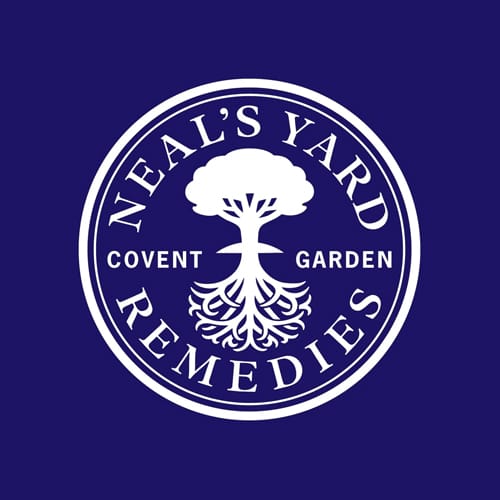
Highlights:
- High organic content
- Gentle, well-crafted essential oil blends
- Trusted, ethical UK brand
Happy Holistics – Organic Handmade Soap
A lovely Bristol-based maker crafting Soil Association–certified organic handmade soaps in small batches. Every bar is palm‑oil‑free.
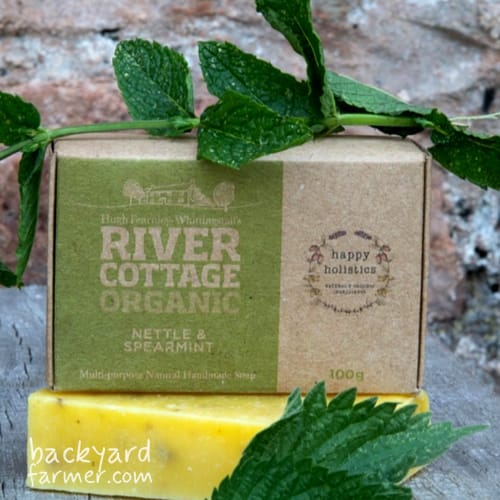
Highlights:
- 100% natural and certified organic
- Completely palm‑oil‑free
- Perfect for eco‑conscious shoppers
Grace & Blume – Organic Ingredients Soap Bars
Grace & Blume blends organic plant oils from Soil Association–approved suppliers with thoughtful aromatherapy-led scents.
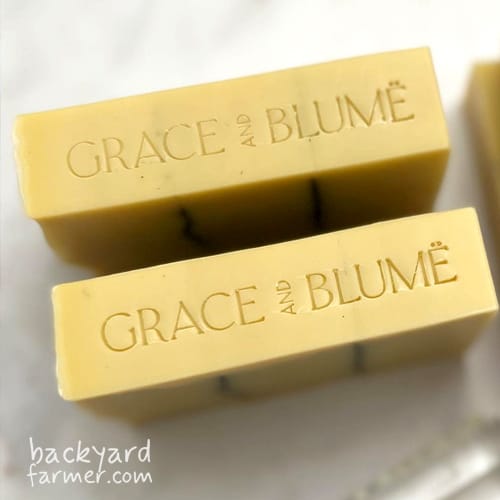
Highlights:
- Organic ingredients throughout
- Aromatherapeutic essential oils
- Plastic‑free packaging
North Devon Soap – Everyday Unscented Organic Bar
An excellent choice for anyone with sensitive or reactive skin. These bars use only organic oils and butters and contain no fragrance.
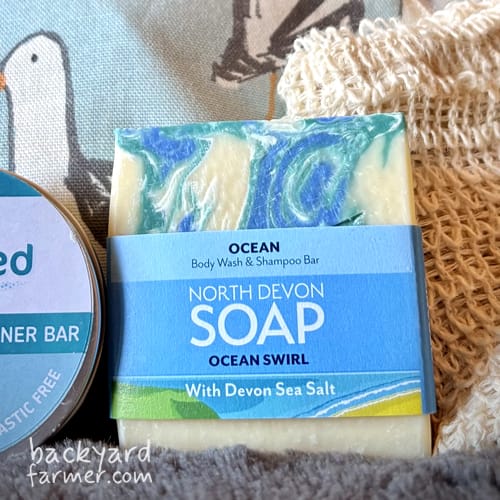
Highlights:
- Ideal for sensitive skin
- Simple, minimal INCI lists
- Fully organic oil base
Lucy Bee – Fragrance Free Soap Bar
Lucy Bee is known for ethical coconut products, and their soap continues that ethos. These bars are organic-leaning, cold‑pressed, and suitable for sensitive skin.
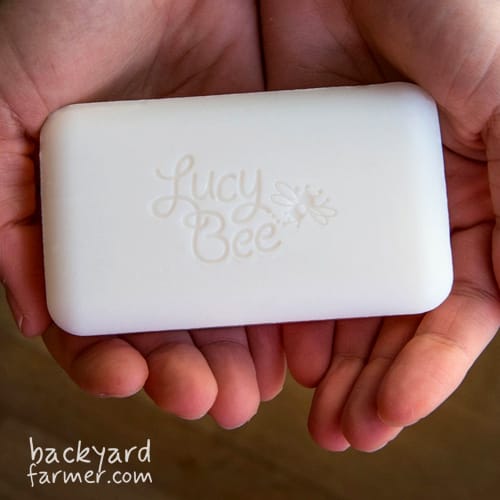
Highlights:
- Palm‑oil‑free
- Fragrance‑free options available
- Strong ethical and sustainability values
How to Choose the Right Organic Soap for You
With so many soaps labelled as natural, organic, handmade, or marketed as organically made soap, choosing the right bar can feel overwhelming., or even promoted as organically made soap, it’s no surprise that choosing the right bar can feel a bit overwhelming. So, this section walks you through the practical factors that actually matter. By the end, you’ll feel far more confident choosing an organic soap bar that suits your skin, your values, and your everyday routine.
Consider Your Skin Type
Your skin type plays a big role in how well a soap performs. in how well a soap performs. Since organic and natural bar soaps vary in richness and simplicity, choosing the right one can make a noticeable difference.
Sensitive or Reactive Skin
- Choose unscented or fragrance-free bars
- Avoid strong essential oils like citrus, cinnamon, or clove
- Look for simple formulas featuring organic olive oil, shea butter, or sunflower oil—common bases in organic soap UK products
Dry Skin
- Pick richer bars made with shea butter, cocoa butter, or avocado oil
- Look for soaps with a higher “superfat” level (extra nourishing oils left unsaponified)
- Fragrance-free formulas often help maintain moisture more effectively
Oily or Combination Skin
- Choose balanced soaps containing castor oil or coconut oil
- Clay-enriched bars (kaolin, bentonite) help absorb excess oil without being harsh
Normal Skin
- You have flexibility—most natural or organic soap bars UK wide will work well, so choose based on scent, sustainability, or brand values
Scented vs Unscented Bars
Your scent preference can influence your choice just as much as your skin type. just as much as your skin type.
Scented (Essential Oil–Based)
- Ideal for anyone who enjoys a bit of aromatherapy in their daily routine
- Choose bars scented with organic essential oils where possible
- Avoid if your skin reacts easily or you prefer fragrance-free routines
Unscented / Fragrance-Free
- Safest option for sensitive or eczema-prone skin
- Great for facial use or for children
- Look for clear terms such as unscented, fragrance-free, or no essential oils
Palm-Oil-Free vs Sustainably Sourced Palm Oil
Palm oil plays a major role in soapmaking because it helps create a firm, long-lasting bar. in soapmaking because it helps create a firm, long-lasting bar. However, its environmental impact makes it a hot topic among eco-conscious soap buyers.
Palm-Oil-Free Soaps
- Usually made with blends of olive, coconut, sunflower, or shea oils
- A strong choice for those who want palm-free options in their organic handmade soap routine
- Hiltwood is an excellent palm-oil-free example
Sustainably Sourced Organic Palm Oil
- Still used by some certified organic brands
- Must meet strict traceability and sustainability standards
- Can be an ethical option when clearly and transparently sourced
Packaging and Sustainability Considerations
For many readers, sustainability goes hand in hand with organic ingredients. with organic ingredients. Thankfully, many natural and organic soap brands prioritise low-impact packaging.
Look for:
- Plastic-free packaging (cardboard, paper wraps)
- Recyclable or compostable materials
- Brands using minimal ink or plant-based dyes
- Companies known for strong environmental ethics
Choosing the right organic soap isn’t about following a trend—it’s about finding a bar that respects your skin, aligns with your values, and supports brands doing things properly.—it’s about finding a bar that respects your skin, aligns with your values, and supports brands doing things properly. In the next section, you’ll find answers to the most common questions people ask about organic soap, natural soap, and organically made soap, helping you choose with even more confidence.
FAQs About Organically Made Soap
To wrap things up, here are clear and down‑to‑earth answers to the questions people ask most when choosing between organically made soap, natural soap, and traditional supermarket bars., here are clear and down‑to‑earth answers to the questions people ask most when choosing between organically made soap, natural soap, and traditional supermarket bars. These quick, skimmable explanations help readers make confident choices—without getting lost in jargon.
Organic soap is usually made from certified organic plant oils—like olive, coconut, sunflower, shea, or castor oil—combined with an alkaline solution to form a natural soap base. Many makers also add organic botanicals or essential oils for extra nourishment or gentle fragrance. This is the foundation of most organic soap bars UK shoppers look for.
Not automatically. Soap can be made with natural ingredients, but it only qualifies as organic soap when the oils and botanicals come from certified organic farming. Plenty of soaps use conventional oils unless they say otherwise, so always check the label.
Often, yes. Many organic bar soap formulas avoid harsh detergents like SLS and rely instead on nourishing, plant‑based oils. However, essential oils can still irritate some people, so unscented organic bars are usually the safest place to start.
Organic soap can feel gentler than conventional washes, but it’s not a treatment. If you’re managing eczema or psoriasis, stick to fragrance‑free organic soap or natural bar soap and follow your GP or dermatologist’s advice.
Organic oils cost more to farm and certify. On top of that, many natural and organic soap makers produce their bars in small batches, use higher‑quality ingredients, and package them in low‑waste or plastic‑free materials.
It depends on the formula. Well‑cured organic handmade soap bars can last a long time—especially when kept on a draining soap dish. Softer, high‑superfat bars may wear down a bit faster.
No. Some bars use certified organic palm oil, while others avoid palm entirely. If you’re specifically looking for palm‑oil‑free organic soap, choose bars that clearly state it or explain their sourcing.
Usually, yes. Organic farming avoids synthetic pesticides, protects soil health, and supports biodiversity. When paired with plastic‑free packaging, organic soap bars become a genuinely low‑impact choice.
Yes. Even natural ingredients can irritate sensitive skin. Essential oils, botanicals, and colourants are common triggers. When in doubt, choose unscented, minimalist organic soap.
Look for:
– A recognised certification logo (Soil Association, COSMOS, Ecocert)
– A clearly stated percentage of organic ingredients
– Honest, easy‑to‑read labelling
– A transparent ingredient list with recognisable plant oils
Many gentle, fragrance‑free organic soaps work well on the face—especially bars rich in olive or sunflower oil. If your skin is dry or reactive, patch test first or choose a bar designed specifically for facial use.
Keep it dry between washes—ideally on a slatted or draining soap dish. Proper storage can easily double the life of a natural or organic bar.
These FAQs help readers cut through the noise, avoid common misconceptions, and confidently choose the organic soap or natural soap that suits their skin and values.
Conclusion
Choosing organically made soap isn’t just about following a trend. It’s about understanding what you’re putting on your skin, supporting brands that genuinely care about their ingredients, and making small, sustainable swaps that make a real difference. And although the term organic can feel vague in the UK, learning how to read labels, recognise certifications, and spot greenwashing makes choosing the right organic soap bar much easier.
Organic and natural soaps offer a gentler, more skin-friendly alternative to mass-produced washes—especially if you struggle with dryness, irritation, or sensitivity. Whether you prefer fully certified organic soap bars UK shoppers trust or you enjoy high-quality natural bars crafted in small batches, there are plenty of excellent options.
Brands like Neal’s Yard Remedies, Bentley Organic, and Austin Austin provide reliable certified-organic reassurance. Meanwhile, smaller makers such as Hiltwood focus on clean, palm-oil-free, naturally formulated bars. If you’d like to explore more palm-oil-free choices, you can also read our complete guide to ethical and sustainable palm-oil-free soaps in the UK.
Ultimately, the best soap is the one that feels good on your skin, aligns with your values, and turns a simple everyday wash into something enjoyable. So, if you’re exploring a more sustainable or skin-conscious lifestyle, switching to organic or natural bar soap is a small but meaningful place to start. And now, you’ve got everything you need to choose a bar with confidence.

